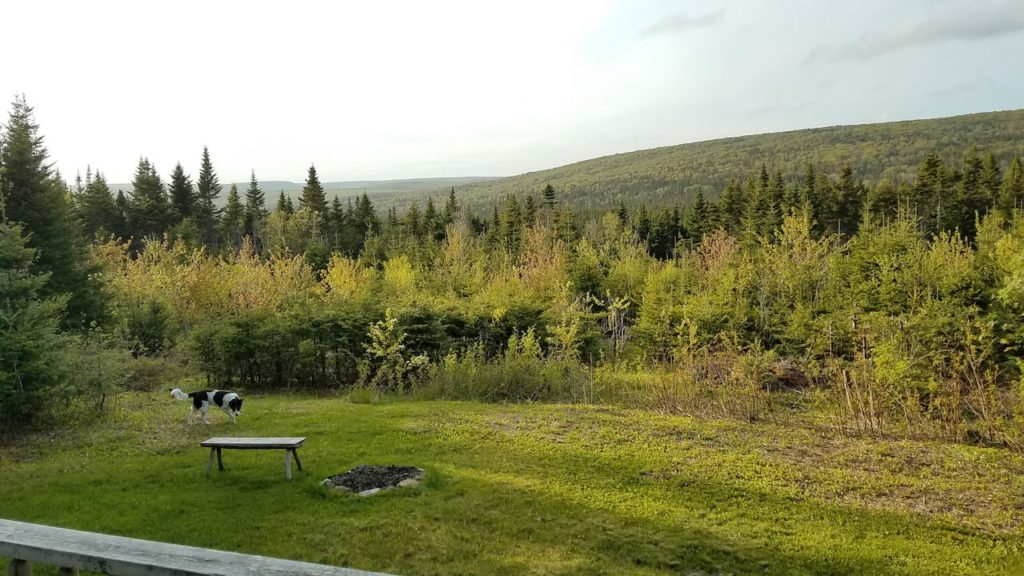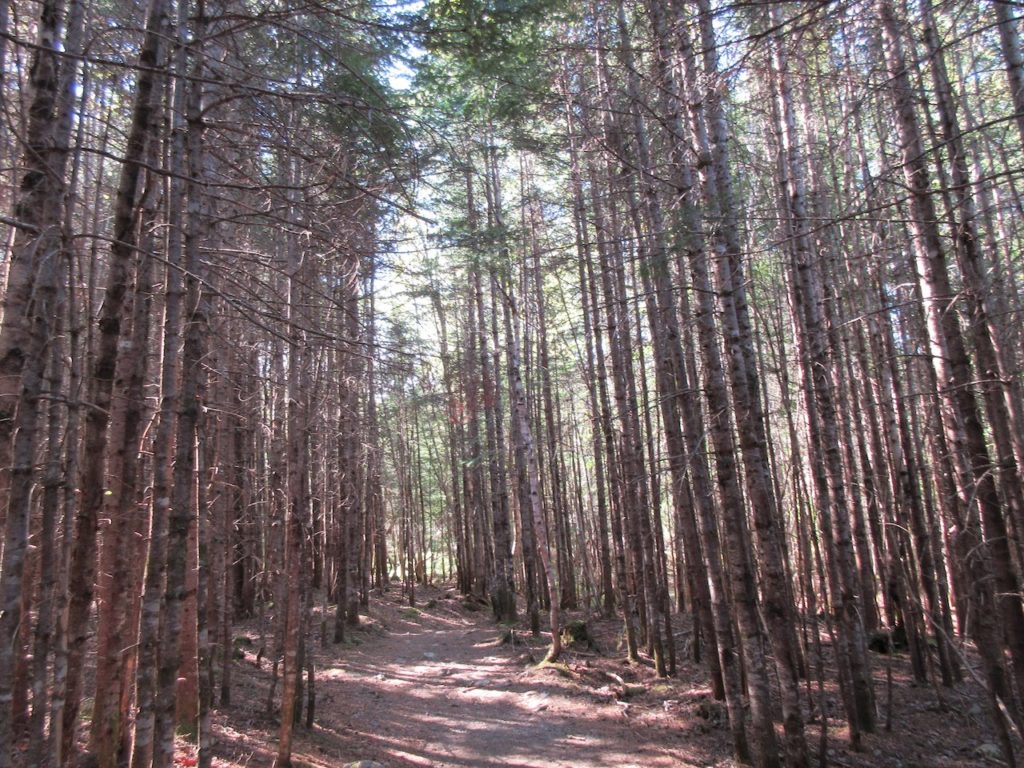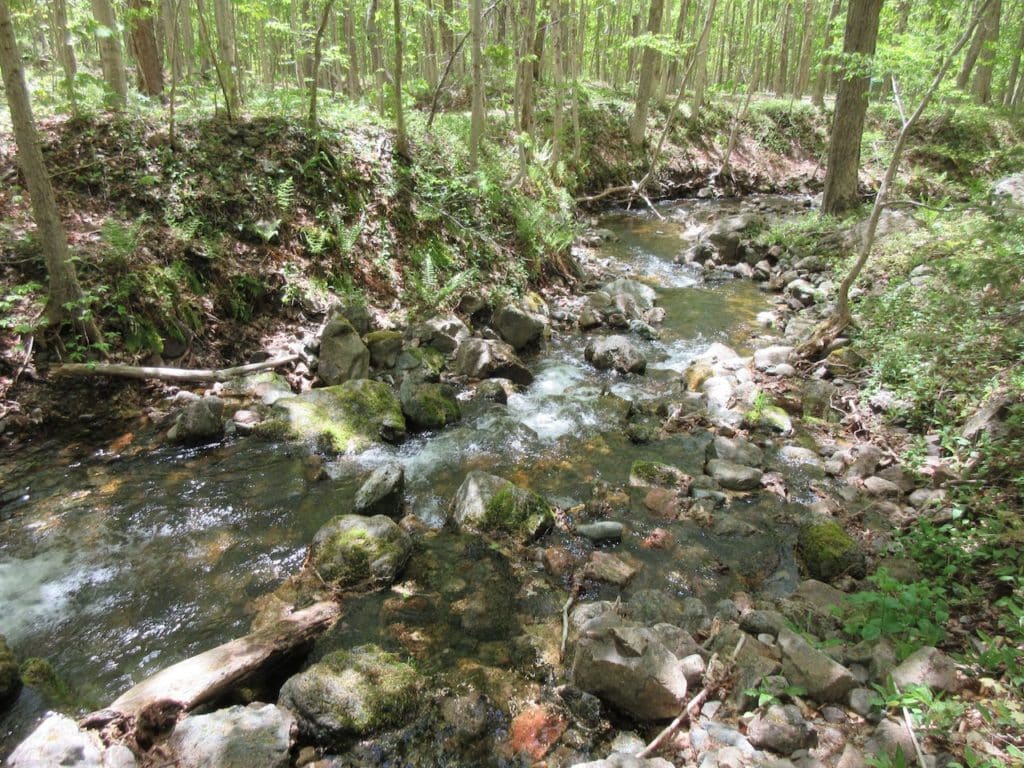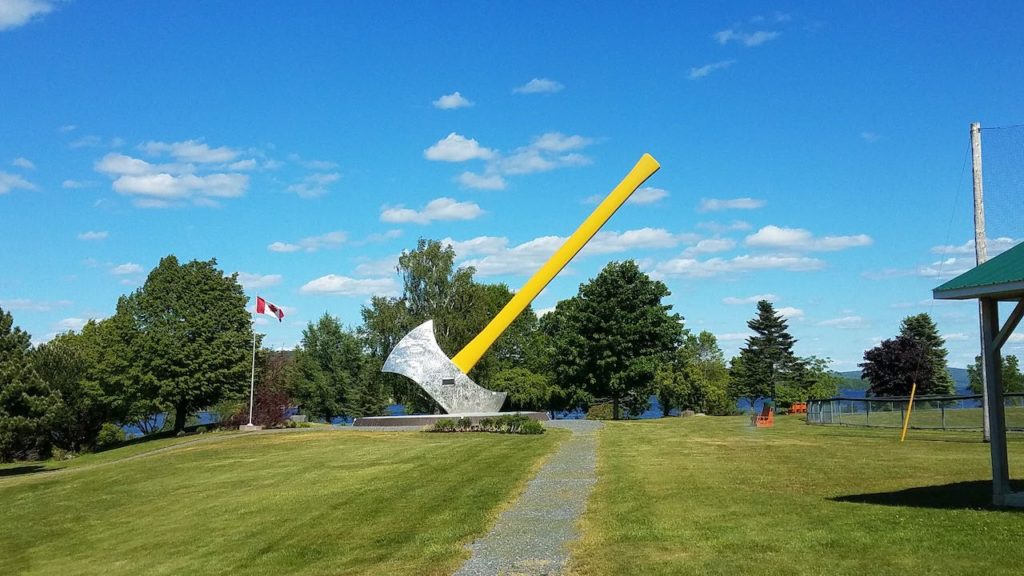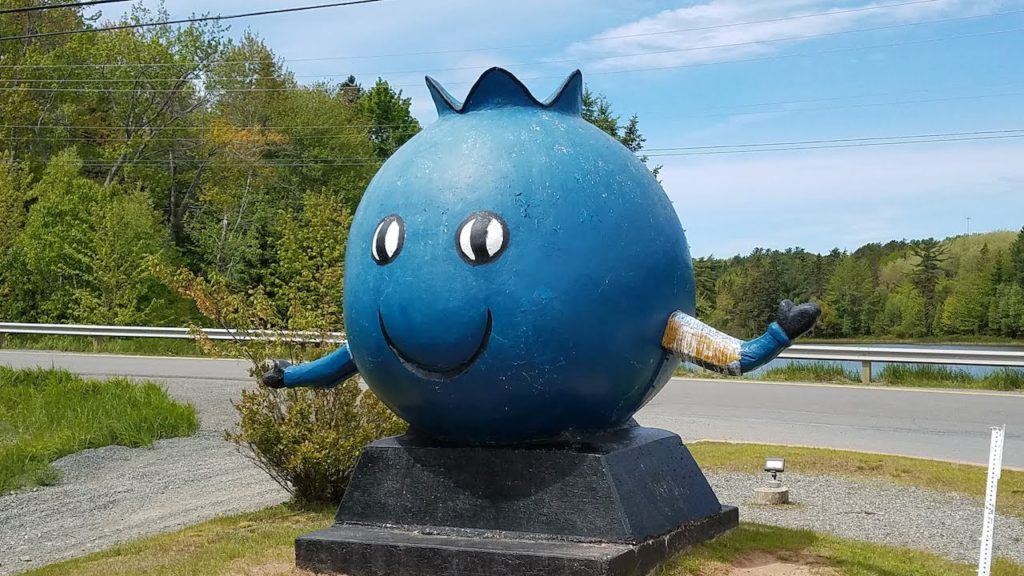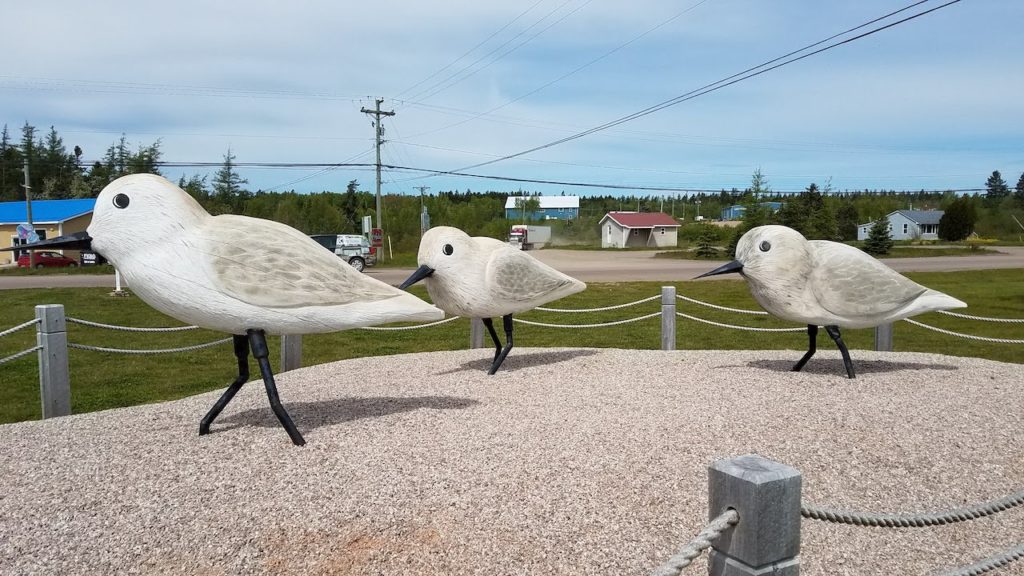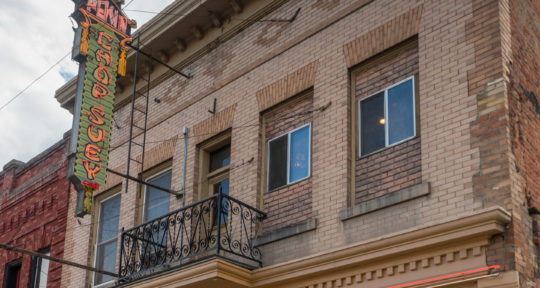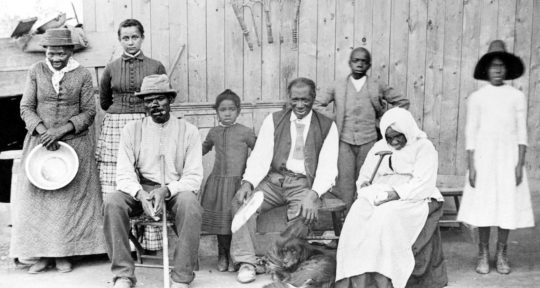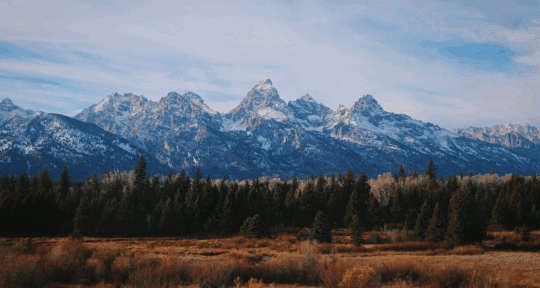Many people have never heard of Cape Breton—an island at the northeastern tip of Nova Scotia—and for generations, the good people of Atlantic Canada were content with this isolation. There was work to do. Fishing and lobstering, farming, mining, and shipping kept the island humming along for decades.
Over time, these older industries began to wither and die and the area began to change. With limited employment prospects, young people left to find work in Canada’s booming cities like Toronto, Calgary, and Vancouver, while those who remained struggled to adjust to an economy with fewer opportunities.
-
Looking down upon Cape Breton highlands from Big Hill Retreat, Baddeck, Nova Scotia. | Photo: Chris Meiman -
For nature lovers, Cape Breton is a dream. | Photo: Chris Meiman -
Cape Breton is surrounded by—and covered with—bodies of water. | Photo: Chris Meiman
Enter Rob Calabrese, a radio DJ in the small city of Sydney, Nova Scotia. “We’re hemorrhaging here. We lose a thousand people a year,” he told the Canadian Broadcasting Corporation in 2016. One of the ways the people of Cape Breton began to reimagine their economy was through tourism. Attracting visitors had always been a goal, but in the wake of deindustrialization, the focus on attracting people to the island became more intense. The Cape Breton Highlands National Park had been drawing crowds since the 1930s, but if the area was going to survive, it needed a different way of bringing people in.
Partly as a joke, Calabrese started a website designed to entice Americans to move to the area if Donald Trump won the 2016 U.S. presidential election. The site—dubbed “Cape Breton if Donald Trump Wins”—became a viral sensation and was featured in dozens of publications including Rolling Stone, Time, and The Washington Post as well as on television networks like CNN, BBC, and Al Jazeera. The point was to draw attention to the area in hopes of getting people to move to Atlantic Canada generally, and Cape Breton specifically. The campaign caught my attention and, in 2018, my wife and I traveled to Cape Breton from New England to see the area for ourselves.
Imaginative reuse
Terry Henderson and his partner Linda Wright operate Big Hill Retreat near Baddeck in Cape Breton. It’s a lovely little spot perched above the Trans-Canada Highway—easy enough to get to, but secluded enough to see the stars on a clear night. When asked about Calabrese’s website, Henderson says, “It seemed just a bit of a joke at first, but continued to get media attention for a while. I really can’t say how much of a real impact it had in people from the States immigrating to Cape Breton to flee Trump.”
Indeed, no one I talked to during our trip seemed to recall waves of Americans moving in overnight. What the website did do was bring attention to the island—and that attention turned into real tourist dollars. Canada’s 150th birthday celebration, which included free admission to all of Canada’s national parks, certainly helped in drawing record-setting crowds in 2017. Those crowds diminished some in 2018, once the anniversary festivities subsided, but were still above levels in 2016, according to Tourism Nova Scotia.
-
Completed in 1991, the World’s Largest Axe is the centerpiece of Nackawic’s beautiful park along the St. John’s River. | Photo: Chris Meiman -
Sitting outside of the Irving gas station in Oxford, Nova Scotia is Oxley, the mascot for the local blueberry industry. | Photo: Chris Meiman -
Though a lesser-known attraction, the World’s Largest Covered Bridge harkens back to Cape Breton’s water-based history. | Photo: Chris Meiman -
Giant seagulls guard the coast, much like real ones would. | Photo: Chris Meiman
For Henderson and many other Cape Breton locals, tourism is the future of the island. “Important parts of the economy have almost disappeared—coal, steel, fishery, and farming,” he says. “Now tourism is coming on strong and this is great.”
Cape Breton and Atlantic Canada have begun to capitalize on these older industries as a way of attracting guests. At the Port of Sydney, where industrial ships now share space with cruise ships, a giant fiddle that plays recorded music welcomes cruisers from New York, Boston, and Montreal. The area is steeped in Celtic traditions and the opportunity to play up these ties is key. Roadside signs around the island invite locals and guests to hear traditional Celtic music at gatherings called ceilidhs.

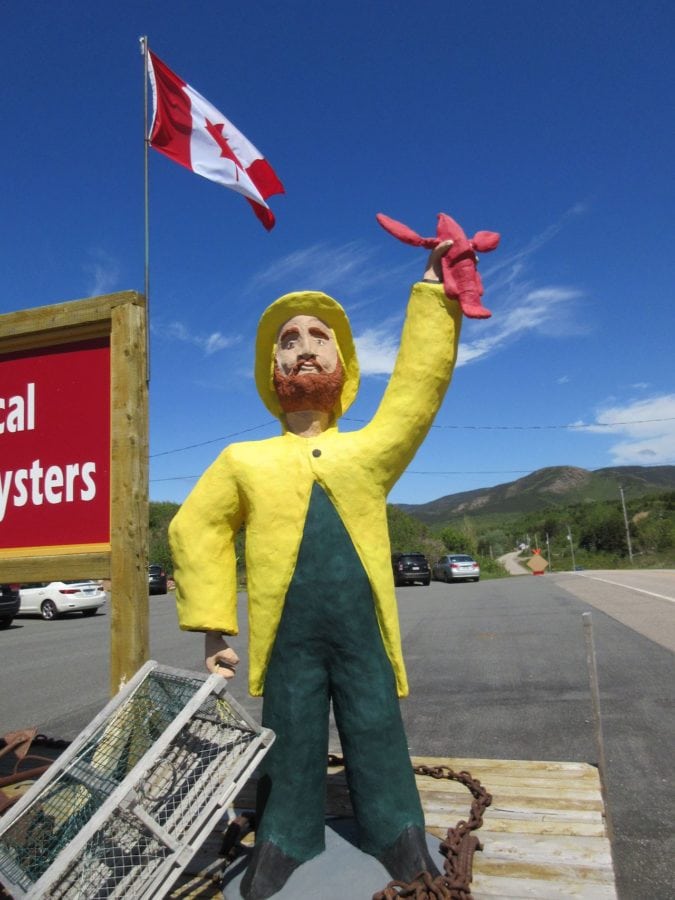
But the Atlantic Canada effort isn’t just about building new tourist attractions; it’s also about making use of historic buildings that supported the community for decades. “With resourcefulness and with respect for the past, we repurpose old structures for tourism use,” says Henderson.
Adaptive reuse tourism projects en route to Cape Breton include a museum highlighting family potato farming at Potato World in Florenceville, New Brunswick; a tribute to the regional timber industry at the World’s Largest Axe in Nackawic, New Brunswick; and a friendly blueberry photo-op at a filling station in Oxford, Nova Scotia in honor of the crop important to the area.
Back for more in 2020
While tourism hasn’t always been a big part of Cape Breton’s overall economy, it certainly is now. For decades, the star of that show has been the national park and the Cabot Trail that rings around it. The scenic, 185-mile roadway could easily rival more famous ocean-side drives like the Pacific Coast Highway and the Ring of Kerry.
One of the biggest challenges for locals is to get people out of their cars and into their businesses. One of the small towns along the drive is Ingonish, the eastern gateway to Cape Breton Highlands National Park. Here, Shannon Costelo and her husband Rob operate Groovy Goats, a small farm store right on the Cabot Trail.
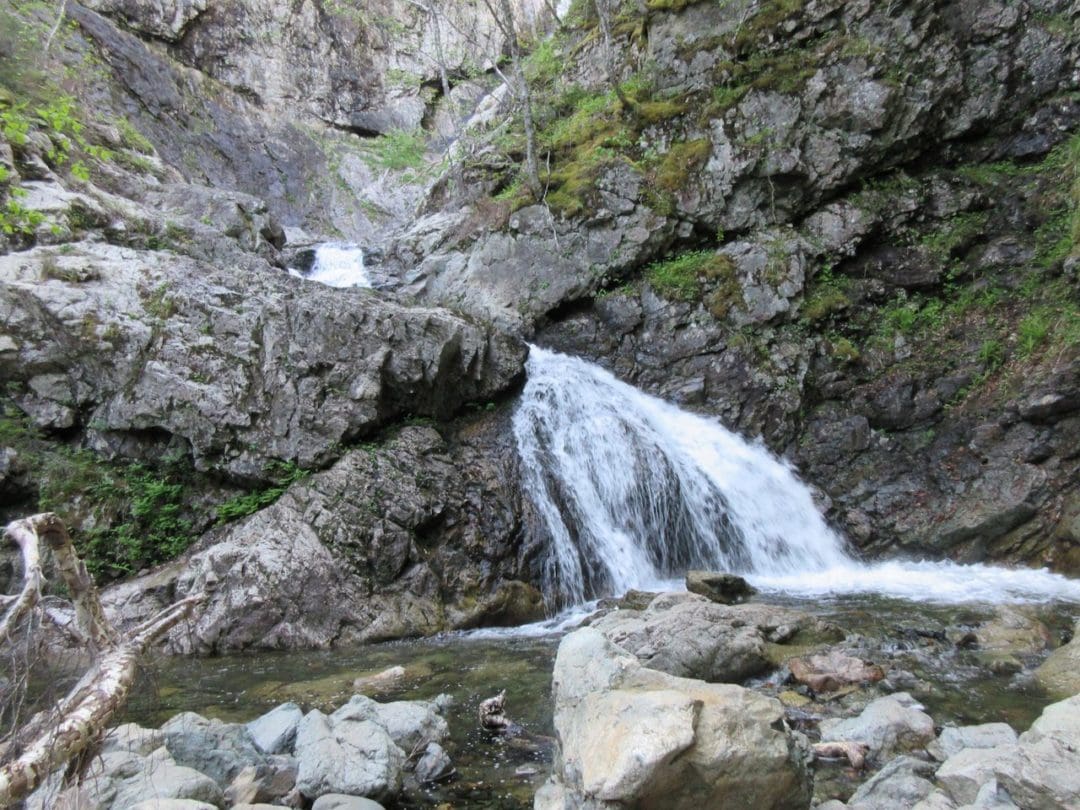
Costelo is aware of Calabrese’s website and while she hasn’t noticed a huge influx of people moving to the island, she does think the site has had an effect on getting more people to visit. “At first I thought it was very clever humor, but as the idea got more momentum I thought, hey, this is great!” she says. “There has actually been a huge increase in business for Groovy Goat since 2017.”
In the spring of 2019, Calabrese relaunched his website with a focus on Donald Trump’s 2020 reelection campaign. Now dubbed “Cape Breton if Donald Trump Wins… Again,” the site features a pointed question wondering how Americans feel about their president with a few years of experience under their belts.
If the answer is “not great” and moving elsewhere is an option, Calabrese’s campaign features a number of links to Cape Breton tourism and immigration websites along with a rather emphatic plea for people to come to the island.
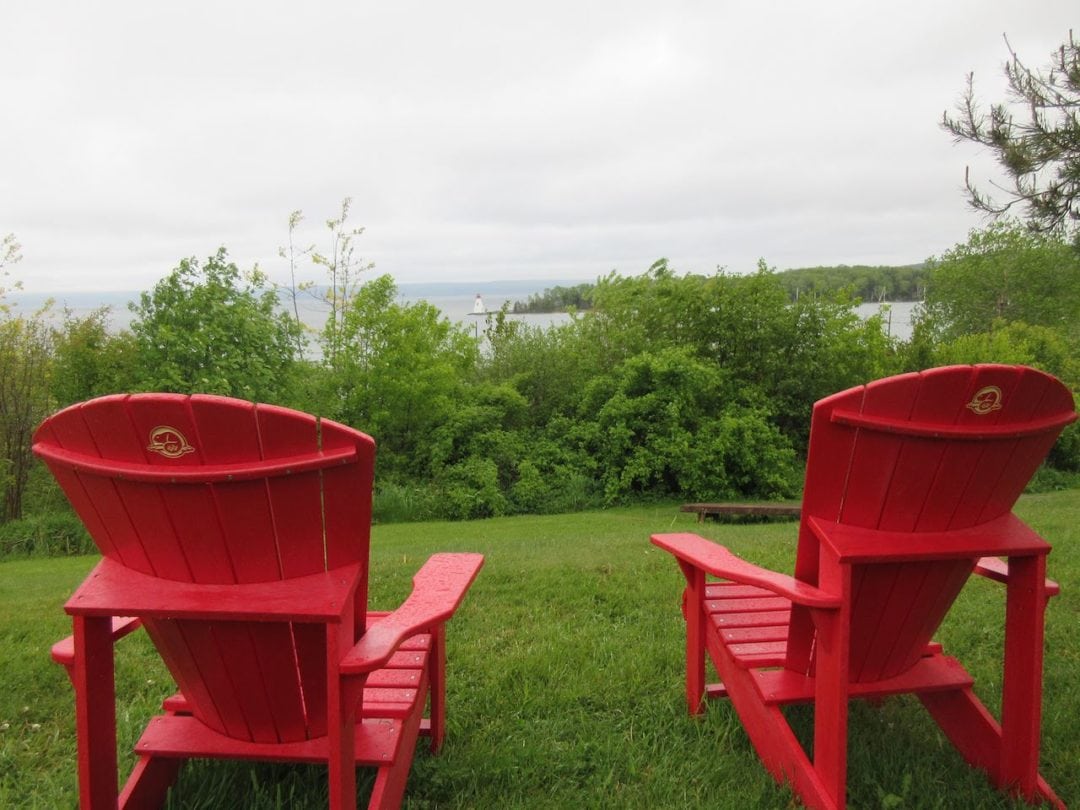
“Our population is shrinking. A slow economy, in combination with out-migration has us on an unsustainable path. The truth is we welcome all, no matter the ideology,” Calabrese writes on his website.
Getting people to visit seems to be the key. Once you set eyes on Cape Breton’s amazing landscape, talk to its wonderful people, and experience its rich culture, the idea of living in such a place becomes more real. As Costelo puts it, “It’s a stunningly beautiful island, but I think the culture and the friendly people are what makes it so unique and special.”
